About CHCI
The Consortium of Humanities Centers and Institutes is a global forum that strengthens the work of humanities centers and institutes through advocacy, grant-making, and inclusive collaboration. CHCI advances cross-institutional partnerships, recognizes regional humanities cultures, and mobilizes the collective capacity of the humanities to engage the most pressing issues in society today.
Our History
Our Mission
We support the future of the humanities by nurturing new forms and methods of global interdisciplinary collaboration.
President
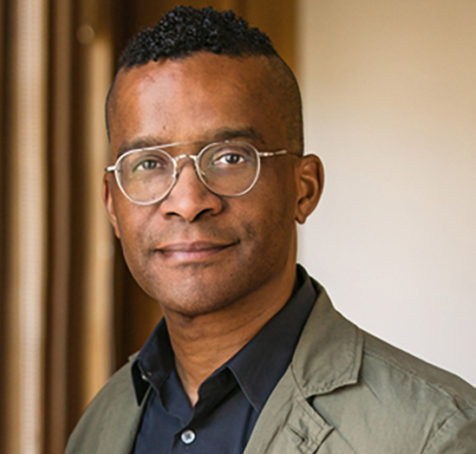
Stephen Best

Stephen Best
Stephen Best is Professor of English at UC-Berkeley, where he is also Director of the Townsend Center for the Humanities. Since 2002 he has been a member of the journal Representations, where he currently serves as Co-Editor (with Niklaus Largier). His scholarship encompasses a variety of fields and materials: American and African-American literature and culture, cinema and technology, rhetoric and the law, and critical theory. He received his B.A. from Williams College (History of Art, 1989), and his Ph.D. from the University of Pennsylvania (English, 1997).
Best’s research explores the nexus between slavery and historiography: the various scholarly and political preoccupation with establishing the authority of the slave past in black life as that project intersects with explorations of where the limits of historicism as a mode of literary study may lay. These concerns were central to the books None Like Us: Blackness, Belonging, Aesthetic Life (Duke University Press, 2018) and The Fugitive's Properties: Law and the Poetics of Possession (University of Chicago, 2004), as well as to a number of special issues of Representations – “Redress” (with Saidiya Hartman), on theoretical and political projects to undo the slave past, “The Way We Read Now” (with Sharon Marcus), on the limits of symptomatic reading, and “Description Across Disciplines” (with Sharon Marcus and Heather Love), on disciplinary valuations of description as critical practice.

Ralph Cohen

Ralph Cohen
Ralph Cohen was the first President of CHCI, heading the organization from its founding in 1988 trough 1995. During this time he was also the founding director of the Commonwealth Center for Literary and Cultural Change at the University of Virginia. Cohen joined the UVA faculty in 1967 and retired 42 years later as William R. Kenan Jr. Professor Emeritus of English. He founded New Literary History in 1969 as a new type of academic journal devoted to the role of theory in exploring literary and cultural questions.
A fellow of both the American Academy of Arts and Sciences (since 1984) and the British Academy (since 1987), Cohen received numerous fellowships and scholarly awards and was visiting professor at universities across the United States and around the world. Before coming to the University of Virginia, he taught at the University of California, Los Angeles for 17 years. After retiring from UVA, he joined James Madison University’s School of Writing, Rhetoric and Technical Communication and helped establish the Cohen Center for the Study of Technological Humanism in 2013. Cohen died on Feb. 23, 2016, on his 99th birthday.

Kathleen Woodward

Kathleen Woodward
Kathleen Woodward, Lockwood Professor in the Humanities and Professor of English, has served as Director of the Simpson Center for the Humanities at the University of Washington since 2000. She is the author of Statistical Panic: Cultural Politics and Poetics of the Emotions (2009), Aging and Its Discontents: Freud and Other Fictions (1991), and At Last, the Real Distinguished Thing: The Late Poems of Eliot, Pound, Stevens, and Williams (1980). She is the editor of Figuring Age: Women, Bodies, Generations (1999) and The Myths of Information: Technology and Postindustrial Culture. From 1986-1995 she coedited Discourse: Journal for Theoretical Studies in Media and Culture. Woodward has received institutional grants from the National Endowment for the Humanities, the Andrew W. Mellon Foundation, the Rockefeller Foundation, and the National Endowment for the Arts. She is a member of the Executive Board of the national office of Phi Beta Kappa and on the Executive Board of HASTAC. She has served on the Board of Directors of the National Humanities Alliance (2003-2009), as Chair of the National Advisory Board of Imagining America (2000-2005), and as President of the Consortium of Humanities Centers and Institutes (1995-2001). She holds a B.A. in Economics from Smith College and a Ph.D. in Literature from the University of California at San Diego.
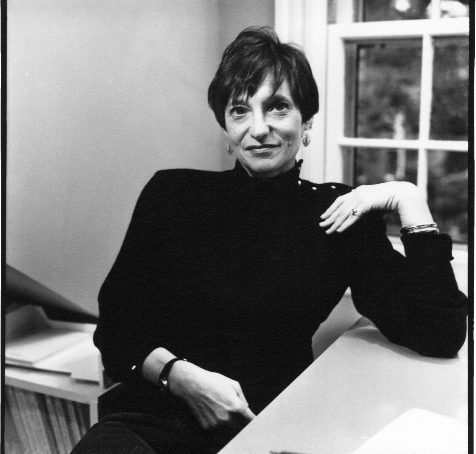
Marjorie Garber

Marjorie Garber
Marjorie Garber is the William R. Kenan, Jr., Professor of English and Visual and Environmental Studies at Harvard University, and Chair of the Committee on Dramatic Arts. She was the President of CHCI from 2001-2007. She has published eighteen books and edited seven collections of essays on topics from Shakespeare to literary and cultural theory to the arts and intellectual life.
Garber has served as Director of the Humanities Center at Harvard, Chair of the Department of Visual and Environmental Studies, and Director of the Carpenter Center for the Visual Arts. She currently serves as a Trustee of the English Institute and on the Board of Directors of the American Council of Learned Societies and a member of the American Philosophical Society.

Srinivas Aravamudan

Srinivas Aravamudan
Srinivas Aravamudan served two terms as the President of CHCI, from 2007-12 and again from 2014-16. Aravamudan was a Professor of English, Romance Studies, and the Literature Program and the former Dean of the Humanities at Duke University.
He was the former director of the John Hope Franklin Humanities Institute at Duke and has held fellowships from the American Council of Learned Societies and the National Endowment of the Humanities. His book, Tropicopolitans: Colonialism and Agency, 1688-1804 (Duke University Press) won the outstanding first book prize of the Modern Language Association in 2000. His next major monograph, Guru English: South Asian Religion in A Cosmopolitan Language, was published by Princeton University Press in 2006 and republished by Penguin India in 2007. He has also edited William Earle’s Obi: or, The History of Three-Fingered Jack (2005, Broadview Press); and co-edited a special issue of PMLA on War (2009). Aravamudan died in April, 2016, at age 54.

Ian Baucom

Ian Baucom
Ian Baucom works on twentieth century British Literature and Culture, postcolonial and cultural studies, and African and Black Atlantic literatures. He is the author of Out of Place: Englishness, Empire and the Locations of Identity (1999, Princeton University Press), Specters of the Atlantic: Finance Capital, Slavery, and the Philosophy of History (2005, Duke University Press), and co-editor of Shades of Black: Assembling Black Arts in 1980s Britain (2005, Duke University Press). He has edited special issues of the South Atlantic Quarterly on Atlantic Studies, Romanticism, and Climate Change and is currently working on a new book project tentatively entitled History 4 Degrees Celsius: Search for a Method. Prof. Baucom came to the University of Virginia, where he is now Dean of the College and Graduate School of Arts and Sciences, after serving 17 years in Duke University’s Department of English as a professor and as the director of the John Hope Franklin Humanities Institute. Since arriving at UVA in the summer of 2014, Dean Baucom has led a series of initiatives within the College and Graduate School of Arts & Sciences.

Sara Guyer

Sara Guyer is Professor of English and Dean of Arts & Humanities at the University of California, Berkeley. She has devoted her entire career to teaching, advancing, and serving the humanities. Until August 2021, she was Dorothy Puestow Draheim Professor of English and Jewish Studies at the University of Wisconsin-Madison, where she directed the Center for the Humanities for over a decade. She is the author of Romanticism after Auschwitz (2007) and Reading with John Clare: Biopoetics, Sovereignty, Romanticism (2015) and the editor of the book series Lit Z.

Javier Durán

Javier D Durán, Director of the Confluencenter for Creative Inquiry and Professor of Latin-American and Border Studies, is a specialist in cultural and literary studies along the U.S.-Mexico border. He is a native of the Arizona-Sonora desert region. Prof. Durán’s areas of teaching and research include U.S.-Mexican border studies, Latin American women writers, Mexican literature and culture, and Chicana/Chicano-Latina/Latino narrative. He has received several research grants from state and federal agencies to conduct research and implement institutional programs during his career. He is the author of José Revueltas. Una poética de la disidencia, published by the Universidad Veracruzana in Mexico, five co-edited books on Cultural Studies, and numerous articles on literary and cultural themes. Prof Durán has taught at Michigan State University, the University of Michigan in Ann Arbor, and has been a Visiting Research Fellow at the Colegio de Sonora in Hermosillo, Mexico, as well as Visiting Teaching Fellow at the Universidad Veracruzana in Xalapa, Veracruz, Mexico. He is one of the founding members of the MLA Discussion Group on Mexican Cultural and Literary Studies and he is past President of the Association for Borderland Studies, the leading international organization in the study of border issues.
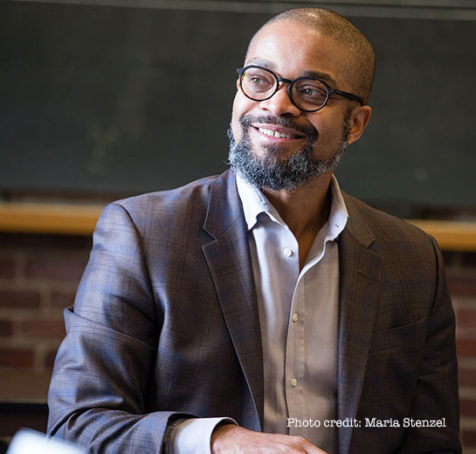
Darryl Harper

Darryl Harper is Associate Professor of Music and director of the Center for Humanistic Inquiry at Amherst College. Before coming to Amherst, he served as chair of the Department of Music in the School of the Arts at Virginia Commonwealth University in Richmond, Virginia. Harper is a jazz musician interested in how race, culture, and political economy intersect with music. His performance credits as a clarinetist include dates with Orrin Evans, Tim Warfield, Dee Dee Bridgewater, Roscoe Mitchell, Dave Holland, Uri Caine, Claudia Acuña, and Regina Carter. He recently toured with The Harlem Hellfighters: James Reese Europe and the Absence of Ruin, pianist Jason Moran’s multimedia meditation in tribute to the iconic World War I veteran who helped to disseminate African American music in Europe. As a composer, Harper has published and recorded over two dozen works, including a film score he co-wrote for the award-winning documentary film Herskovits: At the Heart of Blackness. He has recorded seven albums as a leader, including Y’All Got It: The Music from The Wiz by Charlie Smalls (Hipnotic 2004), Stories in Real Time (Hipnotic 2009), The Edenfred Files (Hipnotic 2013), and The Need’s Got to Be So Deep (Hipnotic 2014).
Advisory Board
Members of the CHCI International Advisory Board are directors of member organizations selected both for their individual qualifications and the need for intellectual, regional, and institutional representation within the Consortium. Beyond their administrative responsibilities—including the supervision of CHCI finances, grants, staff, and meetings—Board members provide the intellectual leadership that is key to identifying emerging opportunities for international collaborations with a transformative effect on scholarly inquiry and conversation on major issues of public concern in the 21st century. If you would like to nominate a colleague or yourself, please complete the online nomination form.
Policies relating to the International Advisory Board can be found on the CHCI Governance Website.
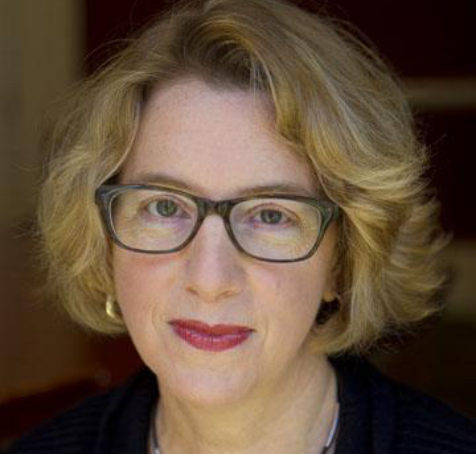
Amanda Anderson

Amanda Anderson is the Andrew W. Mellon Professor of Humanities and English and the Director of the Cogut Institute for the Humanities at Brown University. From 2008-2014, she served as the Director of the School of Criticism and Theory at Cornell University (SCT) and she currently serves as an Honorary Senior Fellow of the SCT. She is a literary scholar and theorist who has written on nineteenth- and twentieth-century literature and culture, literary and political theory, and contemporary debates in the humanities. She is the author of Character: Three Inquiries in Literary Studies(Chicago TRIOS series, 2019, with Rita Felski and Toril Moi), Psyche and Ethos: Morality After Psychology (Clarendon Lectures in English, Oxford, 2018), Bleak Liberalism (Chicago, 2016), The Way We Argue Now: A Study in the Cultures of Theory (Princeton, 2006), The Powers of Distance: Cosmopolitanism and the Cultivation of Detachment (Princeton, 2001), and Tainted Souls and Painted Faces: The Rhetoric of Fallenness in Victorian Culture (Cornell, 1993). She is also the co-editor of George Eliot: A Companion (Wiley-Blackwell, 2013) and Disciplinarity at the Fin de Siècle (Princeton, 2002). Prior to joining the Brown faculty, she taught at Johns Hopkins University, where she served as department chair from 2003-2009. As the Director of the Cogut Institute at Brown, she has developed a new Graduate Certificate in Collaborative Humanities, available to all graduate students currently enrolled in Brown doctoral programs in the humanities and the qualitative social sciences. She is also host of the podcast Meeting Street: Conversations in the Humanities.

Prathama Banerjee

Prathama Banerjee
Banerjee leads the humanities division of the Center for the Study of Developing Societies. She is a historian, trained at Jawaharlal Nehru University, New Delhi and the School of Oriental and African Studies, University of London. She works at the cusp of the philosophical and the literary, the interface which she argues historically produced traditions of political thinking in the global South.
Her recent book Elementary Aspects of the Political: Histories from the Global South (Duke University Press, 2020) studies the rise of modern politics in south Asia in the encounter between colonial modern, classical Indian, Indo-Persian and regional vernacular ideas. It unpacks the modern conception of the political into four elementary aspects – Self, Action, Idea and People – and shows how each so-called element is structured around a conceptual instability, rendering its very elementary status questionable.
Banerjee’s earlier work was on the Politics of Time (Oxford University Press, 2006) in which she looked at the emergence of the modern discipline of history in colonial Bengal out of an encounter with ‘peoples without history’, in diverse discursive and material sites, such as that of calendrical reform, history and geography textbooks, travel literature, anthropology, poetry, indentured labor markets and agrarian credit markets.
Banerjee is currently involved in two projects – the first a long history of political concepts in south Asia cutting across the classical, medieval and modern periods and the second a collaborative thinking about democracy and its frontiers in the contemporary digital-viral age.

Ian Baucom

Ian Baucom works on twentieth century British Literature and Culture, postcolonial and cultural studies, and African and Black Atlantic literatures. He is the author of Out of Place: Englishness, Empire and the Locations of Identity (1999, Princeton University Press), Specters of the Atlantic: Finance Capital, Slavery, and the Philosophy of History (2005, Duke University Press), and co-editor of Shades of Black: Assembling Black Arts in 1980s Britain (2005, Duke University Press). He has edited special issues of the South Atlantic Quarterly on Atlantic Studies, Romanticism, and Climate Change and is currently working on a new book project tentatively entitled History 4 Degrees Celsius: Search for a Method. Prof. Baucom came to the University of Virginia, where he is now Dean of the College and Graduate School of Arts and Sciences, after serving 17 years in Duke University’s Department of English as a professor and as the director of the John Hope Franklin Humanities Institute. Since arriving at UVA in the summer of 2014, Dean Baucom has led a series of initiatives within the College and Graduate School of Arts & Sciences.
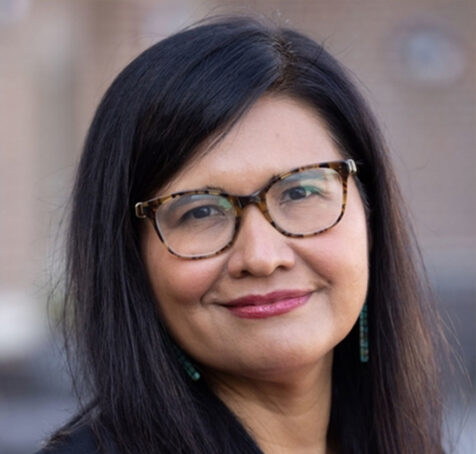
Bianet Castellanos

Bianet Castellanos is the Director of the Institute for Advanced Study and Distinguished McKnight University Professor of American Studies at the University of Minnesota, Twin Cities. Bianet Castellanos received her BA in anthropology from Stanford University, an MA and Ph.D. in anthropology from the University of Michigan, and a certification in Women’s Studies from the Colegio de México’s Programa Internacional de Estudios de la Mujer. Her book, Indigenous Dispossession: Housing and Maya Indebtedness in Mexico (Stanford University Press 2021), analyzes how Maya families make sense of the cultural, political, and legal ramifications of neoliberal housing policies that privilege mortgage finance over land redistribution. It was awarded the Gregory Bateson Book Prize, Arthur J. Rubel Book Prize, and Edward M. Bruner Book Prize, and was a finalist for the Society for Economic Anthropology Book Prize. Her other works include A Return to Servitude: Maya Migration and the Tourist Trade in Cancún (University of Minnesota Press 2010), Comparative Indigeneities of the Américas: Toward a Hemispheric Approach, which she co-edited with Lourdes Gutiérrez Nájera and Arturo Aldama (University of Arizona Press 2012), and the anthology Detours: Travel and the Ethics of Research in the Global South (University of Arizona Press 2019). She edited a forum on settler colonialism in Latin America for America Quarterly and recently co-edited the special double issue Unsettling Global Midwests for American Studies Journal with Christopher Perreira, Thomas Sarmiento, and Jessica Lopez Lyman. Her new research examines settler colonialism in western Mexico and the cultural politics of Indigenous and Afro-Mexican migrations and displacements in this region. She is a member of the Critical Latinx Indigeneities Working Group, the INRS Dialog, and Mexico’s Sistema Nacional de Investigadores. She teaches courses on Indigenous urbanisms; immigration; tourism; women, rage, and politics; American politics and popular culture; and the US-Mexico border. She served for five years as a board member of El Colegio High School in Minneapolis.
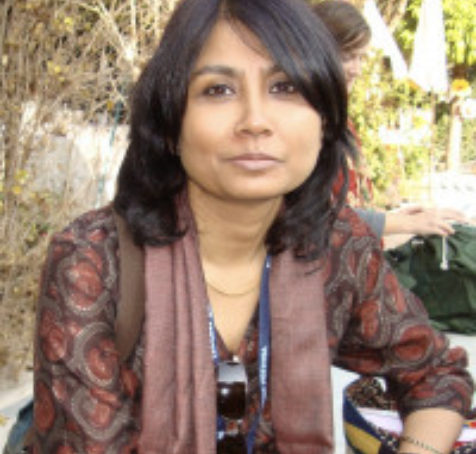
Rosinka Chaudhuri

Rosinka Chaudhuri (D.Phil. Oxon) is Director and Professor of Cultural Studies at the Centre for Studies in Social Sciences, Calcutta (CSSSC). She was inaugural Mellon Professor of the Global South at Oxford University, 2017-18, and has held visiting positions at King’s College, London, Delhi University, Cambridge University and Columbia University.
Her books include Gentlemen Poets in Colonial Bengal: Emergent Nationalism and the Orientalist Project (Seagull: 2002), Freedom and Beef-Steaks: Colonial Calcutta Culture (Orient Blackswan: 2012) and The Literary Thing: History, Poetry and the Making of a Modern Cultural Sphere (Oxford University Press: 2013, Peter Lang: 2014).
She has edited: Derozio, Poet of India: A Definitive Edition (Oxford University Press, 2008), The Indian Postcolonial (with Elleke Boehmer, Routledge UK, 2010), A History of Indian Poetry in English (Cambridge University Press, 2016), An Acre of Green Grass and Other English Writings of Buddhadeva Bose (Oxford University Press, 2018), and a series titled Social Science Across Disciplines (co-edited with Partha Chatterjee, Oxford University Press, 2019). Most recently, she has edited, annotated and introduced George Orwell’s Burmese Days for Oxford World’s Classics as part of their Orwell series (2021).
Many articles, reviews and book chapters have been published nationally and internationally, while her translation Rabindranath Tagore’s letters, titled Letters from a Young Poet (1887-94) (Penguin Modern Classics, 2014) received an Honorable Mention in the category A.K. Ramanujan Prize for Translation (S. Asia) at the Association for Asian Studies Book Prizes 2016.

Wendy Chun
Wendy Hui Kyong Chun is Simon Fraser University’s Canada 150 Research Chair in New Media, Professor in the School of Communication, and Director of the Digital Democracies Institute. At the Institute, she leads the Mellon-funded Data Fluencies Project, which combines the interpretative traditions of the arts and humanities with critical work in the data sciences to express, imagine, and create innovative engagements with (and resistances to) our data-filled world.
She has studied both Systems Design Engineering and English Literature, which she combines and mutates in her research on digital media. She is author many books, including: Control and Freedom: Power and Paranoia in the Age of Fiber Optics (MIT, 2006), Programmed Visions: Software and Memory (MIT 2011), Updating to Remain the Same: Habitual New Media (MIT 2016), and Discriminating Data: Correlation, Neighborhoods, and the New Politics of Recognition (2021, MIT Press). She has been Professor and Chair of the Department of Modern Culture and Media at Brown University, where she worked for almost two decades and is currently a Visiting Professor. She is a Fellow of the Royal Society of Canada, and has also held fellowships from: the Guggenheim, ACLS, American Academy of Berlin, Radcliffe Institute for Advanced Study at Harvard.

Paul Fleming

Professor of Comparative Literature and German Studies as well as the Taylor Family Director of the Society for the Humanities and L. Sanford and Jo Mills Reis Professor of Humanities, Paul Fleming has published monographs on Exemplarity and Mediocrity: The Art of the Average from Bourgeois Tragedy to Realism (2009) and The Pleasures of Abandonment: Jean Paul and the Life of Humor (2006) along with edited volumes on Walter Benjamin, Hans Blumenberg, Siegfried Kracauer, the scholars around Stefan George, and Ulrich Peltzer. His translation of Peter Szondi's Essay on the Tragic appeared in 2002 and of Hans Blumenberg's Care Crosses the River in 2010. He co-translated Blumenberg's St. Matthew Passion for Cornell Press (2021). Fleming's teaching and research interests include eighteenth and nineteenth century German and European literature, especially the novel; aesthetics and hermeneutics from 1750 to the present; Critical Theory; the relation between narration and knowledge. He is editor of the book series Signale in Cornell Press and co-editor of the journal New German Critique. He serves on the boards of diacritics and the book series Paradigms: Literature & the Human Sciences in de Gruyter Press.

Sara Guyer
Sara Guyer is Professor of English and Dean of Arts & Humanities at the University of California, Berkeley and past President of the Consortium of Humanities Centers and Institutes (2016-2022). She has devoted her entire career to teaching, advancing, and serving the humanities. Until August 2021, she was Dorothy Puestow Draheim Professor of English and Jewish Studies at the University of Wisconsin-Madison, where she directed the Center for the Humanities for over a decade. She is the author of Romanticism after Auschwitz (2007) and Reading with John Clare: Biopoetics, Sovereignty, Romanticism (2015) and the editor of the book series Lit Z.

Jennifer Ho
The daughter of a refugee father from China and an immigrant mother from Jamaica, Jennifer Ho is the director of the Center for Humanities & the Arts at the University of Colorado Boulder, where she also holds an appointment as Professor in the Ethnic Studies department, and teaches courses on Asian American culture and Critical Race Theory. She is past president of the Association for Asian American Studies (2020-2022) and has edited three essay collections– Global Anti-Asian Racism (Columbia University Press 2024), Teaching Approaches to Asian North American Literature (MLA Press 2022 w/Jenny Wills), Narrative, Race, and Ethnicity in the United States (Ohio State University Press 2017 w/Jim Donahue & Shaun Morgan)--and three scholarly monographs, Consumption and Identity in Asian American Coming-of-Age Novels (Routledge 2005), Racial Ambiguity in Asian American Culture (Rutgers University Press 2015),, and Understanding Gish Jen (University of South Carolina Press 2015 and 2022 paperback with new introduction). In addition to her academic work, Ho is active in community engagement around issues of race and intersectionality, leading workshops on anti-racism and how to talk about race in our current political climate.
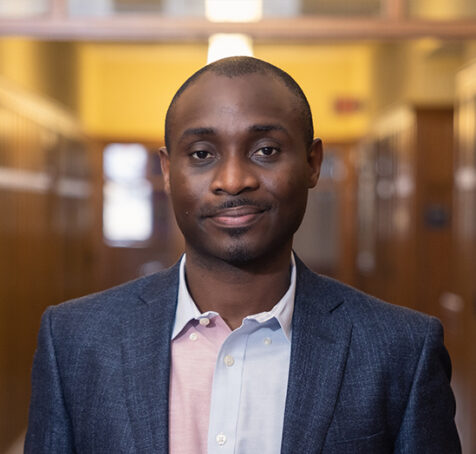
Cajetan Iheka

Cajetan Iheka specializes in African literature, ecocriticism, ecomedia, and postcolonial literature. He serves as director of the Whitney Humanities Center, chair of the Council on African Studies, and head of the Africa Initiative at Yale. Professor Iheka is the author of Naturalizing Africa: Ecological Violence, Agency, and Postcolonial Resistance in African Literature (Cambridge University Press, 2018), winner of the 2019 Ecocriticism Book Award of the Association for the Study of Literature and Environment, and the 2020 First Book Prize of the African Literature Association. His latest single-authored book is African Ecomedia: Network Forms, Planetary Politics (Duke University Press, 2021). The monograph, which positions Africa at the center of discourses on media ecologies, materiality, and infrastructure, received six book prizes. Among other accolades, African Ecomedia won the 2022 African Studies Association Best Book Prize (formerly Herskovits Book Prize), the Ecocriticism Book Award of the Association for the Study of Literature and Environment, and the Harold and Margaret Sprout Award of the International Studies Association. He is also editor of the MLA volume Teaching Postcolonial Environmental Literature and Media (2022); and coedited African Migration Narratives: Politics, Race, and Space (University of Rochester Press, 2018), and Environmental Transformations, a special issue of African Literature Today.
Professor Iheka is currently working on a comparative study of the cultural and formal intimacies of African and Caribbean literatures. He serves as Editor-in-Chief of African Studies Review, the multidisciplinary journal of the African Studies Association.
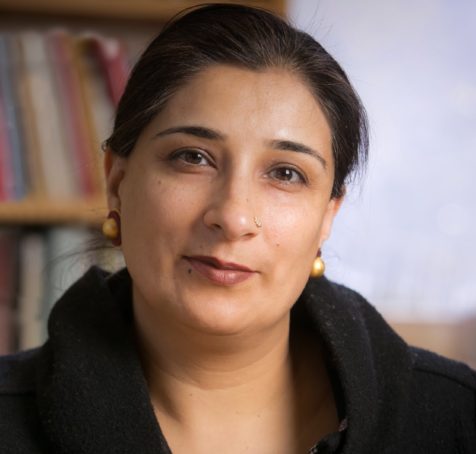
Ranjana Khanna

Ranjana Khanna, Professor of English, Literature, and Women’s Studies at Duke University, was appointed Director of the John Hope Franklin Institute in 2018. Khanna is a literary critic and theorist recognized for her interdisciplinary, feminist, and internationalist contributions to the fields of post-colonial studies, feminist theory, literature, and political philosophy. She is best known for her work on melancholia and psychoanalysis, but has also published extensively on questions of postcolonial agency, film, Algeria, area studies, autobiography, Marxism, and visual and feminist theory. Khanna is the author of Algerian Cuts: Women and Representation, 1830-Present (2007) and Dark Continents: Psychoanalysis and Colonialism (2003). Her theorization of subjectivity and sovereignty, including her recent work on disposability, indignity, and asylum, engages with the work of diverse thinkers, including Derrida, Irigaray, Kant, Marx, Heidegger, Beauvoir, and Spivak. She served as the Margaret Taylor Smith Director of Women’s Studies from 2007–2015.

Kader Konuk

Kader Konuk is a comparatist with expertise in the literary and cultural history of migration and exile. She is professor of German literature at the Technical University Dortmund. From 2014 to 2023, she was professor of Turkish literary and cultural studies at the University Duisburg-Essen and between 2001 and 2013 an assistant professor and, subsequently, associate professor of comparative literature and German studies at the University of Michigan. In 2017, she co-founded Academy in Exile, a third-party-funded fellowship program that has offered 75 scholars-at-risk from 15 different countries fellowships to resume their research in Germany.

Amy Lind
Amy Lind is Mary Ellen Heintz Professor of Women’s, Gender, and Sexuality Studies. She is currently serving as UC's Taft Research Center Director & Faculty Chair. Prior to this, she served as Head of the Department of Women's, Gender, and Sexuality Studies from August 2015 through December 2018 and as Graduate Director for four previous years. In 2017-2018, she also served as Provost Fellow, in which capacity she oversaw assessment and reaccreditation in the College of Arts & Sciences. She holds faculty affiliations in Sociology, Romance & Arabic Languages & Literatures, the Latin American, Latinx and Caribbean Studies Program, and the College of Design, Art, Architecture and Planning (DAAP).
Dr. Lind's areas of scholarship and teaching include urban studies, global political economy, development and postcolonial studies, Global South/transnational social movements, feminist and queer theory, and studies of neoliberal governance. A qualitative researcher with great interest in people's stories of survival and resistance, she has lived, worked and conducted research in Latin America for over 30 years, including in Ecuador, Peru, Bolivia, and Venezuela. She is the author of Gendered Paradoxes: Women’s Movements, State Restructuring, and Global Development in Ecuador (Penn State University Press, 2005), and editor of four volumes, including Development, Sexual Rights and Global Governance (Routledge, 2010) and Feminist (Im)mobilities in Fortress(ing) North America: Rights, Citizenships and Identities in Transnational Perspective (Ashgate Publishing, 2013, co-edited with Anne Sisson Runyan, Patricia McDermott and Marianne Marchand). Her new book, Constituting the Left Turn: Resignifying Nation, Economy and Family in Postneoliberal Ecuador (with Christine Keating), addresses the cultural, economic, and affective politics of Ecuador's postneoliberal Citizen Revolution. She has held distinguished visiting professor positions in Ecuador, Bolivia and Switzerland and has delivered over fifty invited lectures at institutions around the world. She is a member of the Ohio Humanities Consortium, a network of university humanities center directors and deans who advocate for humanities education at the state level.
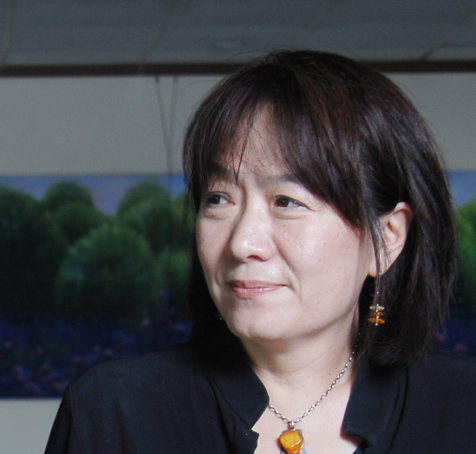
Joyce C.H. Liu

Joyce C.H. Liu is Chair Professor of the Institute of Social Research and Cultural Studies, director of the International Center for Cultural Studies, and the International Program of Inter-Asia Cultural Studies at National Chiao Tung University. She founded the above-listed three institutes over the past 20 years. Before her service at NCTU, she served as the English Department chairperson from 1887 to 1993 and established the first doctoral program of Comparative Literature at Fu Jen Catholic University in 1994. She also served as the president of the Association of Cultural Studies of Taiwan and the Journal of Cultural Studies' chief editor from 2011 to 2017. Her research areas include critical theory, comparative literature, visual studies, cultural studies, political philosophy. Her primary concerns are geopolitics, biopolitics, border politics, internal coloniality, unequal citizens, epistemic decolonization, and artistic interventions. Currently, she is the PI of two on-going joint research projects: "Conflict, Justice, Decolonization: Critical Inter-Asia Cultural Studies" (awarded by the Ministry of Education, Taiwan) (2018-2022), and "Migration, Logistics, and Unequal Citizens in the Global Context" (awarded by CHCI-Mellon Foundation) (2019-2021). She is the author of six books, One Divides into Two: Philosophical Archaeology of Modern Chinese Political Thought (2020), The Topology of Psyche: The Post-1895 Reconstruction of Ethics (2011), The Perverted Heart: The Psychic Forms of Modernity (2004), Literature and Film: Image, Reality and Cultural Criticism (2003), Orphan, Goddess, and the Writing of the Negative: The Performance of Our Symptoms (2000). She also published nine co-edited volumes, including East-Asian Marxisms and their Trajectories (Routledge 2017), European-East Asian Borders in Translation (Routledge 2014), Biopolitics, Ethics, and Subjectivation (L'Harmattan 2011).
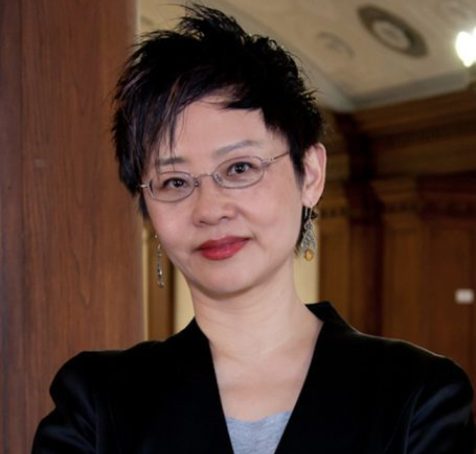
Lydia Liu
Lydia H. Liu is the Wun Tsun Tam Professor in the Humanities at Columbia University. She is the author of The Freudian Robot: Digital Media and the Future of the Unconscious (2010). Her other books include The Clash of Empires: The Invention of China in Modern World Making (2004); Tokens of Exchange: The Problem of Translation in Global Circulations (editor, 1999); Translingual Practice: Literature, National Culture, and Translated Modernity (1995); and Writing and Materiality in China (co-edited with Judith Zeitlin, 2003) as well as a collaboration with Rebecca Karl and Dorothy Ko called The Birth of Chinese Feminism: Essential Texts in Transnational Feminism (2013). As a bilingual writer, her experimental detective fiction in Chinese, The Nesbit Code (Oxford University Press, Hong Kong) won the 2014 Hong Kong Book Award. Her recent articles include “Abgründe des Universalismus: P. C. Chang entgrenzt die Menschenrechte” published in the Zeitschrift für Ideengeschichte IX/1 Frühjahr 2015; another article titled “The Eventfulness of Translation: Temporality, Difference, and Competing Universals” published in translation: a transdisciplinary journal (in Italy), no.4 (Spring 2014); “Shadows of Universalism: The Untold Story of Human Rights Around 1948,” Critical Inquiry, Summer 2014; “Henry Wheaton” in the Oxford Handbook of the History of International Law edited by Bardo Fassbender and Anne Peters with Simone Peter and Daniel Högger (Oxford, 2012) as well as “Translingual Folklore and Folklorics in China” in A Companion to Folklore, edited by Regina F. Bendix and Galit Hasan-Rokem (Blackwell Publishing Ltd., 2012). Among her awards, Lydia H. Liu was a Guggenheim Fellow and a Fellow of the Wissenschaftskolleg in Berlin.
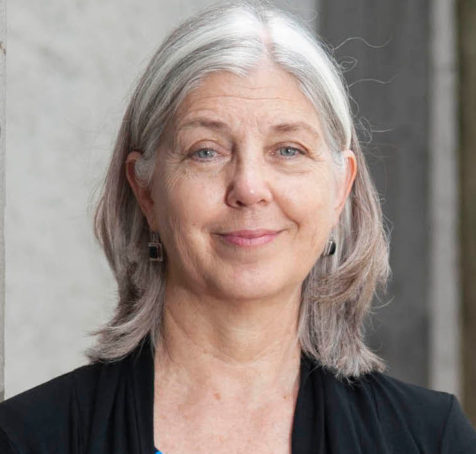
Teresa Mangum
A Professor in the Departments of Gender, Women’s, and Sexuality Studies and English, Mangum was appointed as Director of the Obermann Center for Advanced Studies in 2010. She is the author of Married, Middle-brow, and Militant: Sarah Grand and the New Woman Novel (1998); editor of A Cultural History of Women: Volume 5: The Age of Empire, 1800–1920 (Berg 2013); and guest editor of special issues of Philological Quarterly, Nineteenth-Century Contexts, Victorian Periodicals Review, and the Journal of Aging Studies. With Anne Valk of the City University of New York, she co-edits the book series Humanities and Public Life for the University of Iowa Press. She has published numerous articles and book chapters on the ways that nineteenth-century British novels shaped readers' understanding of women, of late life, and of connections between humans and other animals. She also publishes on current issues: publicly engaged pedagogy, the place of service in an academic career, and graduate student placement. Mangum has served in a number of administrative roles, both on campus and nationally. At the University of Iowa, she has been Associate Chair for undergraduate studies in English, Associate Dean of International Programs, Co-director of the Public Digital Humanities Cluster, Faculty Associate Director of the Obermann Center, and Faculty Senate Secretary. She recently co-directed a four-year Mellon-funded project, Digital Bridges for Humanistic Inquiry: A Grinnell College and University of Iowa Partnership, and currently directs a second Mellon-funded initiative, Humanities for the Public Good, which will create a cohort-based, interdisciplinary, experiential Ph.D. focused on preparing students for careers in the public sector.
Beyond the University, she serves on the advisory boards of Nineteenth-Century Gender Studies; Age, Culture, Humanities; Victorian Review; and Victorian Periodicals Review. She is Vice President of the Board of Directors of the National Humanities Alliance and Co-chair of the Council on the Status of Women in the Profession of the Modern Language Association. In the past, she has served on the National Advisory Board and Executive Committee of Imagining America: Artists and Scholars in Public Life; as secretary of the Women’s Caucus for the Modern Languages (affiliated with the Modern Language Association); Chair of the Delegate Assembly Organizing Committee of the Modern Language Association; President of Interdisciplinary Nineteenth-Century Studies (INCS); and Associate Director of the Dickens Project, a consortium of 70 international universities.
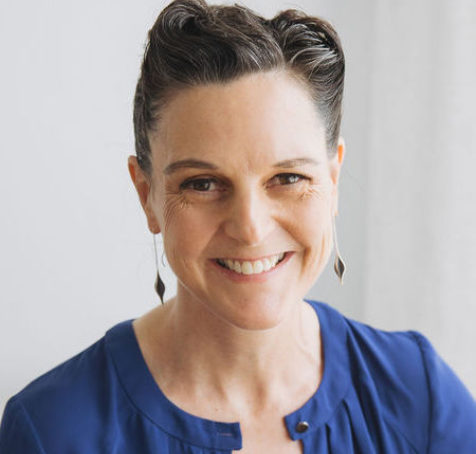
Kylie Message-Jones

Kylie Message-Jones
Kylie Message-Jones is Professor of Public Humanities and Director of the Humanities Research Centre at the Australian National University. She is also Director of the Australasian Consortium of Humanities Researchers and Centres, a Research Fellow of the National Museum of Australia, and external Advisor to the Vietnamese Museum of Australia. Previously, she was Associate Dean Research for the ANU College of Arts and Social Sciences, and Deputy Chair of the University Research Committee. In preceding years, she was Interim Director of the ANU Research School of Humanities and the Arts, and Head of the School of Archaeology and Anthropology.
Message-Jones is the author of “Collecting Activism, Archiving Occupy Wall Street”, “The Disobedient Museum: Writing at the Edge”, “Museums and Racism”, “Museums and Social Activism: Engaged Protest”, “New Museums and the Making of Culture”, and co-editor of “Museum Theory: An Expanded Field”. She is founding general series editor of the Routledge book series, “Museums in Focus”, and lead general editor of the Bloomsbury series, “A Cultural History of Protest, Dissent and Activism”. Message-Jones’ institutional ethnographies and organizational histories have led to new ways of addressing relationships between racism and contested histories in organizational and public/community settings, and her documentation of curatorial and social activism within multicultural policy climates since the 1970s has contributed to understandings about the political history and impact of culture.
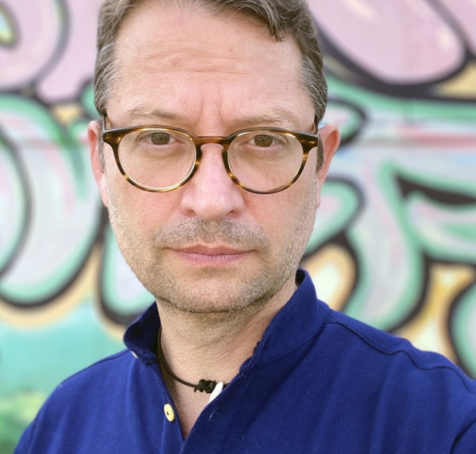
Richard Neer
Richard Neer is Barbara E. and Richard J. Franke Distinguished Service Professor in Art History, Cinema & Media Studies and the College at the University of Chicago, where he is also Director of the Franke Institute for the Humanities. He works at the intersection of aesthetics, archaeology and the history of art in multiple fields: Classical Greek sculpture, early modern French painting, stylistics, and mid-20th century cinema. His Ph.D. is from the University of California at Berkeley (History of Art, 1998), his A.B. from Harvard College (Fine Arts, 1991). He has received fellowships and awards from the J. Paul Getty Museum, the Center for Advanced Study in the Visual Arts, the J. Paul Getty Trust and the American Academy in Rome. From 2010 to 2018 he was the Executive Editor of Critical Inquiry, where he continues to serve as Co-Editor.
His most recent volumes are Pindar, Song, and Space: Towards a Lyric Archaeology, co-authored with Leslie Kurke of UC Berkeley (Johns Hopkins University Press, 2019), , which won the 2020 PROSE Award in Classics from the Association of American Publishers, Davidson and His Interlocutors, co-edited with Daniele Lorenzini (special issue of Critical Inquiry, Winter 2019), Conditions of Visibility (Oxford University Press, 2019), and Art and Archaeology of the Greek World: A New History, 2500–100 BCE, 2nd edn. (Thames & Hudson, 2018). His previous book, The Emergence of the Classical Style in Greek Sculpture (University of Chicago Press, 2010), was named a “Best Book” of 2010 in Artforum. He is currently writing a book on Nicolas Poussin, the Brothers Le Nain and their contemporaries, under contract with the University of Chicago Press.
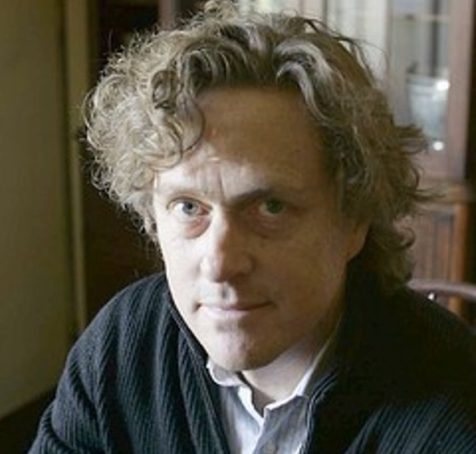
Christopher Newfield

Christopher Newfield was Distinguished Professor of English at the University of California, Santa Barbara and is now Director of Research at the Independent Social Research Foundation in London. A multidisciplinary scholar, his areas of research are Critical University Studies, literary criticism, quantification studies, innovation studies, the intellectual and social effects of the humanities, and U.S. cultural history before the Civil War and after World War II. His current research project involves the nature and effects of literary knowledge. He has written a trilogy of books on the university as an intellectual and social institution: Ivy and Industry: Business and the Making of the American University, 1880-1980 (Duke University Press, 2003); Unmaking the Public University: The Forty Year Assault on the Middle Class (Harvard University Press, 2008); and The Great Mistake: How We Wrecked Public Universities and How We Can Fix Them (Johns Hopkins University Press, 2016). His research on universities emerged from practical experience with university planning and budgeting through the University of California’s academic senate. He is co-author of What Metrics Matter? Academic Life in the Quantified University (Johns Hopkins University Press, 2023) and is co-editor of The Limits of the Numerical (University of Chicago Press, 2022). He has served as co-principal investigator on a multi-year grants from the National Science Foundation (“Nanotechnology in Society”) and as PI on a multi-year collaborative research grant funded by the National Endowment for the Humanities (“Limits of the Numerical: Metrics and the Humanities in Higher Education”). He has co-authored a film, What Happened to Solar Innovation? He also writes about American intellectual and cultural history (The Emerson Effect: Individualism and Submission in America, University of Chicago Press), and has co-edited Mapping Multiculturalism (University of Minnesota Press) with Avery F. Gordon. He is immediate past president of the Modern Language Association. He blogs on higher education policy at Remaking the University, and has written for the Huffington Post, Inside Higher Ed, The Chronicle of Higher Education, WonkHE (UK), The Guardian’s Higher Education Network, and the Los Angeles Review of Books.

Kerill O'Neill

Kerill O’Neill, the Julian D. Taylor Professor of Classics at Colby College, is Special Assistant to the Provost for Humanities Initiatives. He was the founding Director of the Center for the Arts and Humanities (2012-2021). Prior to that appointment, he served as Humanities Division Chair (2008–2012). He is the Executive Director of the New England Humanities Consortium, and serves as co-leader of the Network of Liberal Arts Colleges and Small Universities within CHCI. As director of the center, he promoted an inclusive vision of the arts and humanities that is heavily student-focused. He highlights the value of the humanistic disciplines both as a rigorous intellectual pursuit that helps make sense of life’s big questions, and as an excellent preparation for full lives and successful careers in a rapidly changing world. His research interests focus on the intersection of literature and material culture and, increasingly, on the classical tradition. He has written on love magic in Latin poetry, religious cult in Bronze Age archaeology, and the impact of Greek tragedy on later literature and art. He holds a B.A. from Trinity College, Dublin, and a Ph.D. from Cornell University, and was a Townsend Scholar at the Centre Louis Gernet in Paris.
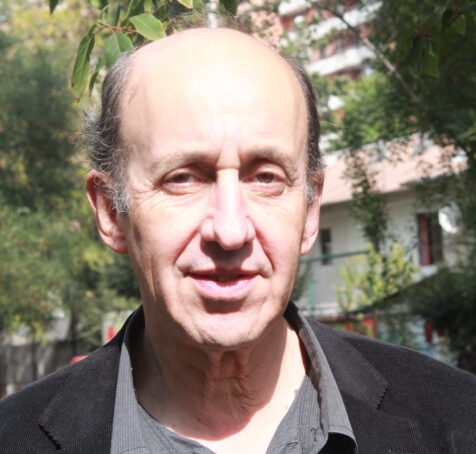
Pablo Oyarzún

Pablo Oyarzún Robles is Professor of Philosophy and Aesthetics at the University of Chile. He is also Director of the Central Seminar of Research at the Institute of Arts of the Pontifical Catholic University of Valparaiso, and Director of the Interdisciplinary Center of Studies in Philosophy, Arts, and Humanities at the University of Chile. He is the author of more than 400 publications, including books, book chapters, essays, articles, and critiques, on the topics of metaphysics and ontology, moral and political philosophy, epistemology, philosophy of language, aesthetics, and theory of arts and literature, culture, education, and politics. He has edited and translated works by Epicurus, Pseudo-Longinus, Swift, Kant, Baudelaire, Kleist, Benjamin, and Celan. At the University of Chile he has served as Vice-Dean (1991–1994) and Dean (2003–2010) of the Faculty of Arts and is currently Executive Director of the Bicentennial Initiative for the Revitalization of Humanities, Arts, Social Sciences and Communication.

Patricia Parker

Patricia (Pat) Parker (Ph.D. University of Texas at Austin) is the Ruel W. Tyson Distinguished Professor of Humanities and Director of the Institute for the Arts and Humanities at the University of North Carolina at Chapel Hill, where she previously served as chair of the Department of Communication and Director of the Graduate Certificate in Participatory Research. A critical communication scholar activist and decolonial researcher, her work centers Black feminist/womanist leadership as critical organizing praxis. Her scholarship includes two books, two coedited book series, and dozens of articles and book chapters. Her most recent book, Ella Baker’s Catalytic Leadership (University of California Press) is grounded in the Black intellectual traditions advanced by human rights strategist Ella Baker. It is a primer on community engagement drawn from her experiences working alongside Black teen girls learning and doing social justice leadership following those traditions. Pat’s current projects flow from her work as co-chair of the University Commission on History and Race where she is leading efforts to center Black descendant communities in telling the histories of their ancestors and memorializing them, while creating pathways toward reckoning, healing, and repair. Parker is the 2023 recipient of the Thomas Jefferson Award, one of the highest honors for UNC-Chapel Hill faculty in recognition of academic work that exemplifies the ideals of democracy, public service, and the pursuit of knowledge.
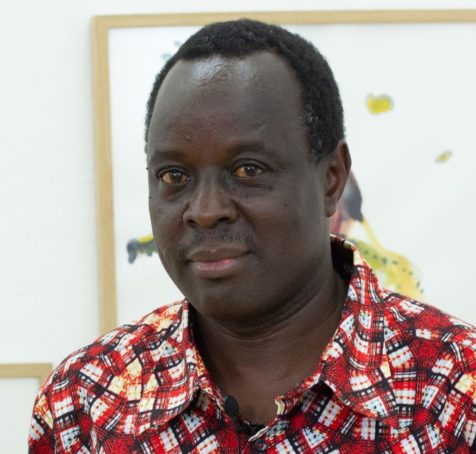
Peter Tirop Simatei

Peter Tirop Simatei is a Professor of Comparative Literature. He teaches African literature, Diaspora studies, literary theory and African Cinema in the Department of Literature, Theatre & Film. He has a BA (Hons) from the University of Nairobi, M.Phil from Moi University and a PhD from the University of Bayreuth, Germany. Prof. Simatei is a Fellow of the Alexander von Humboldt Stiftung. He has been a German Research Council (DFG) Post-doctoral Fellow (Postcolonial Studies Program) at the University of Munich (LMU) and a fellow of the Five College African Scholars program at the University of Massachusetts, USA. Peter Simatei works in the broad fields of Postcolonial studies, Anglophone literatures, and Diaspora studies (all of which intersect). His focus is on negotiations of diaspora, migration, and gender and popular culture. His research enjoys international standing in postcolonial literary and cultural studies with specialization in the areas of East African, African and Indian diaspora literature and popular culture. His work aims to understand the ways in which diaspora and diasporic identities work within, against, and/or around national identities. Published in reputable journals Simatei’s work makes an important intervention in theories of diaspora that sometimes all too easily discount the centrality of the nation-state to diasporic consciousness. His future emphasis will be on the visions of the future that have been generated in Africa and its diasporas.

Cristina Stanciu

Cristina Stanciu is an Associate Professor of English and the Director of the Humanities Research Center at Virginia Commonwealth University, a position she’s held since December 2020. Under her leadership, the HRC became a university-wide designated center at VCU in 2022. She is a scholar of Indigenous and multiethnic literatures of the United States and visual culture, author and editor of four books, three edited journal special issues, and over a dozen peer-reviewed articles and book chapters. She is an editorial board member of PMLA and NAIS, and served as book review editor of MELUS between 2020 and 2023. Select publications include The Makings and Unmakings of Americans: Indians and Immigrants in American Literature and Culture, 1879-1924 (Yale UP, 2023), Race in the Multiethnic Literature Classroom (co-editor, U of Illinois P, 2024), and a forthcoming edited volume, Indigenous Media Ecologies. In the last five years Stanciu was awarded two Fulbright Awards and an Obama Fellowship. In April 2023, the College of Humanities and Sciences at VCU awarded her the Distinguished Service Award.
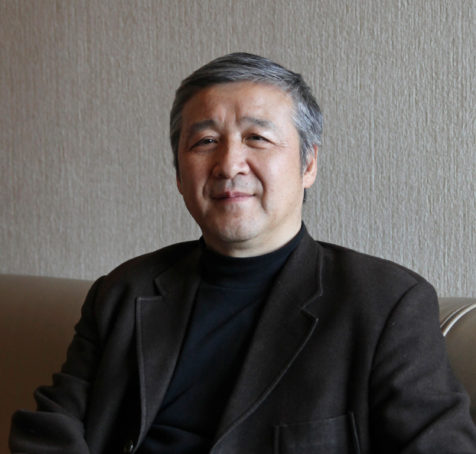
Wang Hui

Wang Hui is a Distinguished Professor of Literature and History at Tsinghua University, Beijing. One of the esteemed scholars in fields of intellectual history, social theory, and modern literature, and a leading figure of the "Chinese New Left", Wang Hui’s work has attempted to chart the intellectual and political conditions of contemporary China and has remained committed to the project of deep engagement with both the history and the consequences of Chinese modernity. He graduated with a PhD in Chinese literature from the Chinese Academy of Social Sciences in 1988. Since the early 1990s, he has been invited to many universities around the world as visiting professor or research fellow, including Harvard, Columbia, NYU, Stanford, Tokyo University, Wissenschaftskolleg zu Berlin, and Bologna University. From 1996 to 2007, he served as the chief editor of Dushu Magazine, the most influential intellectual journal in China. He has published extensively on Chinese intellectual history, literature, and engaged in debates on historical and contemporary issues, many of which have been translated into English, Italian, Spanish, Japanese, Korean, German, Slovenian, and Portuguese. English translations of his scholarship include China’s Twentieth Century (2015), China From Empire to Nation-State (2014), The Politics of Imagining Asia (2010), The End of Revolution (2009) and China’s New Order (2003). His four-volume work The Rise of Modern Chinese Thought (2004, in Chinese) is regarded as one of the most important contributions to modern Chinese scholarship over the past two decades. Wang Hui is the recipient of numerous awards, such as “2013 Luca Pacioli Prize” which he shared with Jürgen Habermas in Italy and “Anneliese Maier Research Award” (2018) in Germany

Kathleen Woodward

Kathleen Woodward, Lockwood Professor in the Humanities and Professor of English, has served as Director of the Simpson Center for the Humanities at the University of Washington since 2000. She is the author of Statistical Panic: Cultural Politics and Poetics of the Emotions (2009), Aging and Its Discontents: Freud and Other Fictions (1991), and At Last, the Real Distinguished Thing: The Late Poems of Eliot, Pound, Stevens, and Williams (1980). She is the editor of Figuring Age: Women, Bodies, Generations (1999) and The Myths of Information: Technology and Postindustrial Culture. From 1986-1995 she coedited Discourse: Journal for Theoretical Studies in Media and Culture. Woodward has received institutional grants from the National Endowment for the Humanities, the Andrew W. Mellon Foundation, the Rockefeller Foundation, and the National Endowment for the Arts. She is a member of the Executive Board of the national office of Phi Beta Kappa and on the Executive Board of HASTAC. She has served on the Board of Directors of the National Humanities Alliance (2003-2009), as Chair of the National Advisory Board of Imagining America (2000-2005), and as President of the Consortium of Humanities Centers and Institutes (1995-2001). She holds a B.A. in Economics from Smith College and a Ph.D. in Literature from the University of California at San Diego..
Staff

Guillaume Ratel
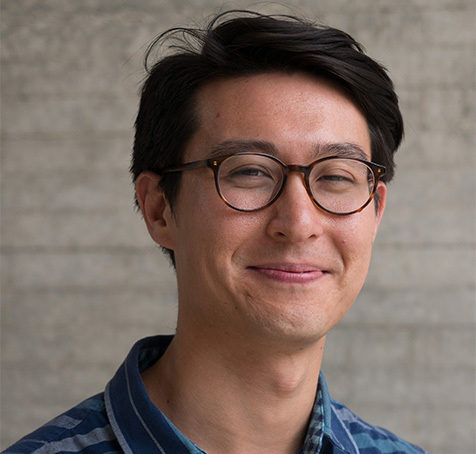
Aaron Fai
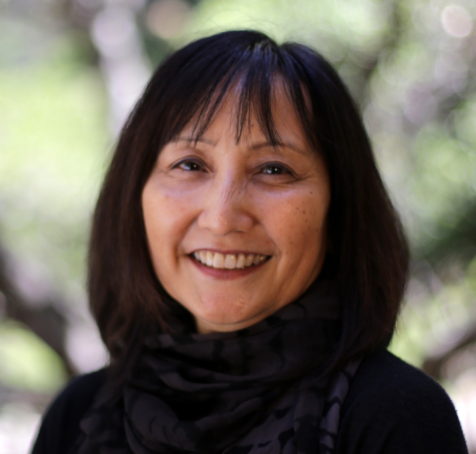
Diane Soper

Mary Murrell
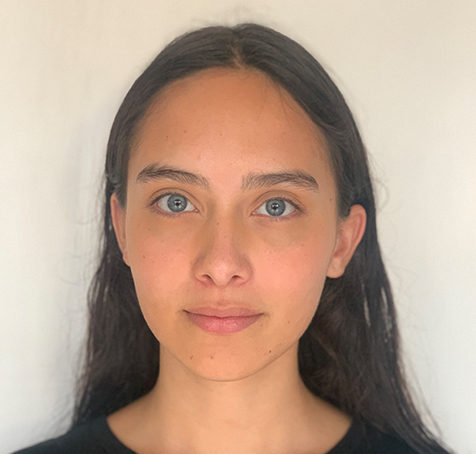
Valentina de la Pava

Guillaume Ratel
Guillaume has been managing all of the Consortium of Humanities Centers and Institutes grants and programs since joining CHCI in 2016. As Executive Director, Guillaume now oversees all of the Consortium's operations, budgets, and staff, as well as the new cycle of the Mellon-CHCI Global Humanities Institutes and Inclusive Collaboration initiative.
A historian by training, Guillaume holds a Diplôme d’archiviste paléographe from the École nationale des chartes in Paris, a M.A. from the Sorbonne, and a Ph.D. from Cornell University, where his doctoral research focused on the role of legal practices in the emergence of state-sponsored notions of absolute truth. Before joining CHCI, Guillaume served as the Assistant Director of the Clarke Program in East Asian Law and Culture at the Cornell Law School, and as Program Manager at the Wisconsin Center for Education Research at the University of Wisconsin-Madison. Guillaume can be reached at ratel@berkeley.edu.

Aaron Fai
Aaron Fai ("fay") / 費頌倫 is the Membership and Diversity Officer at the Consortium of Humanities Centers and Institutes, where he guides the next phase of CHCI’s inclusive collaboration project. He welcomes your questions and ideas about CHCI's membership, communications, inclusivity initiatives, and programs: afai@berkeley.edu.
A first-generation queer Hong Kong Chinese-American, Fai grew up in Los Angeles. He previously worked as the Assistant Director of Public Humanities at the University of Wisconsin-Madison Center for the Humanities, and as the Program Manager at the Wisconsin Academy of Sciences, Arts & Letters. At UW-Madison, Fai co-founded the Badger Anti-Racist Coalition and was co-director of an anti-racist rubric project for campus units. He received a B.A. in English and Spanish from the University of California-Los Angeles, an M.A. in English from the University of California-Davis, and an M.F.A. in Creative Writing from the University of Oregon. He served in Peace Corps Kyrgyzstan, and is Associate Editor of Grand Journal where he solicits and publishes the work of emerging writers and translators of color.

Diane Soper
Diane Soper is the Business Manager for CHCI, and also the Finance & Office Manager at the Townsend Center for the Humanities at UC Berkeley. While at Berkeley, she has worked in the East Asian Languages & Cultures Department and the Philosophy Department.

Mary Murrell
Mary is a cultural anthropologist with a prior career in book publishing who joined the World Humanities Report in July 2020. She received her Ph.D. from the University of California, Berkeley, with a dissertation on the legal and social controversies around the mass digitization of books. As an undergraduate at the University of Virginia, she studied English and Classics. Her research has been supported by the National Science Foundation, the American Council of Learned Societies, the Andrew W. Mellon Foundation, the University of California, and the University of Wisconsin. Prior to becoming an anthropologist, Mary worked as an acquisitions editor at Princeton University Press for 14 years. From 2016-2019 she served on the Editorial Committee of the University of Wisconsin Press and also has served on the Advisory Boards of Libraria and Project Muse. She is currently an Honorary Fellow in the Department of Anthropology at the University of Wisconsin, Madison.

Valentina de la Pava
Valentina de la Pava is a Political Economy and Art History student at UC Berkeley serving as the Communications Assistant for the Consortium. She manages and develops our social media outreach by engaging with platforms such as Instagram and newsletters. As an international student from Bogotá, Colombia, she also works to grow our Spanish content and Latin American relations. After completing an internship with the gallery Casas Riegner in 2019, she created a campaign to alleviate the socio-economic consequences heightened by the pandemic in the indigenous Wayuu community. After graduating in 2025, she aspires to work in a brokerage firm relating to the arts before completing her masters.